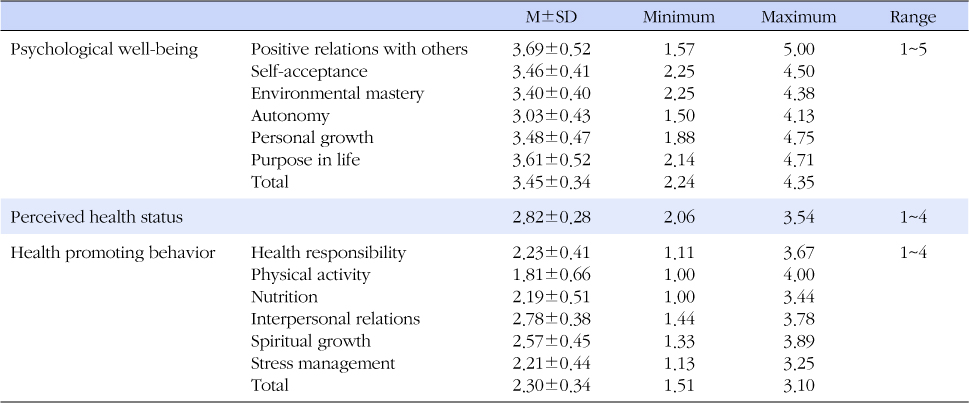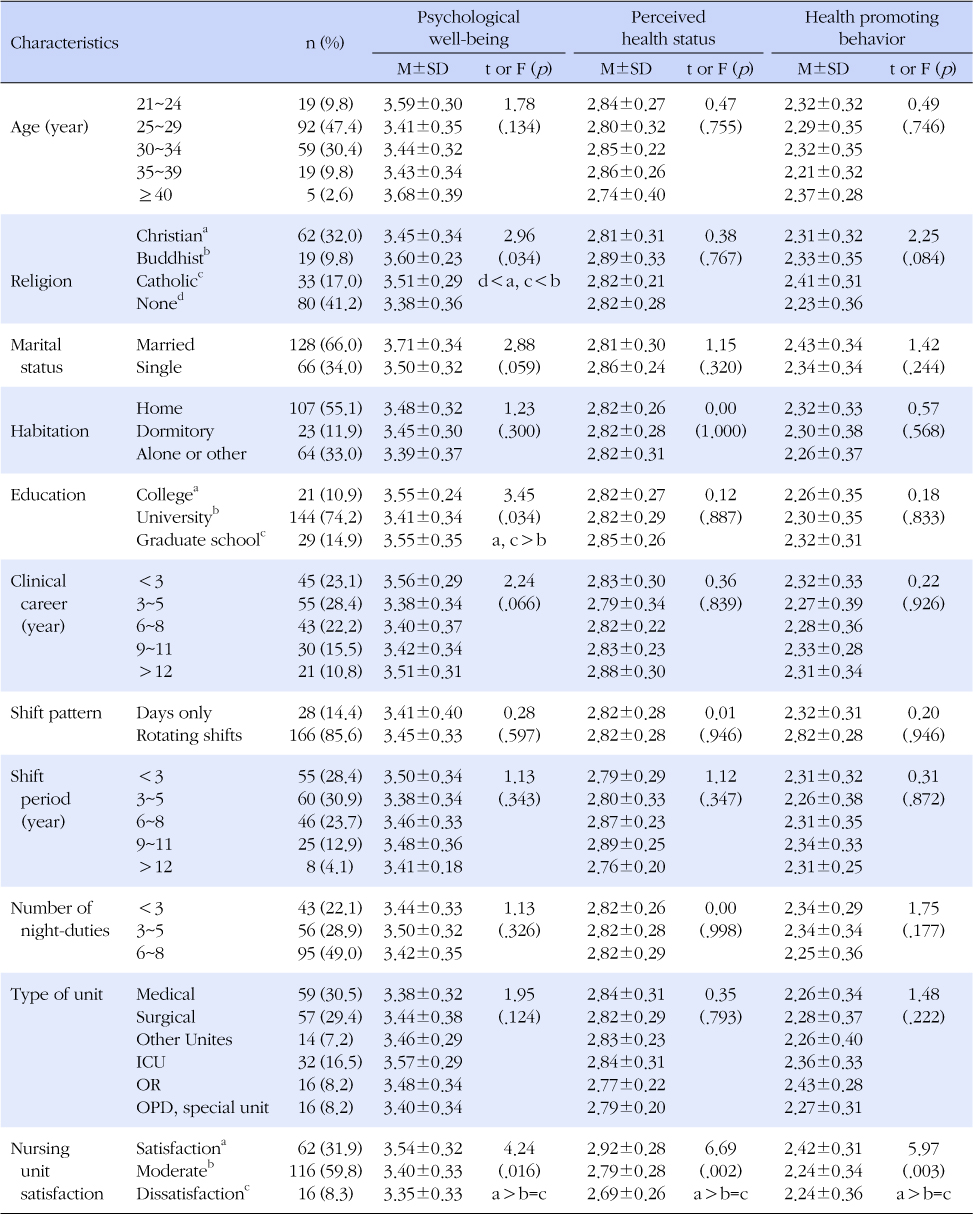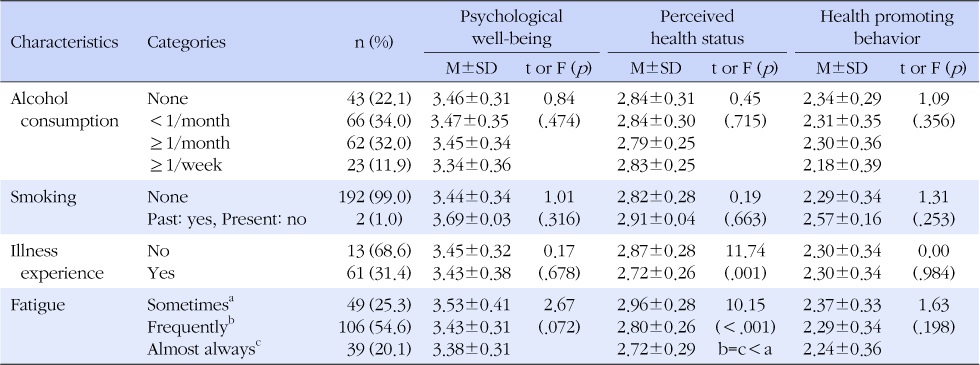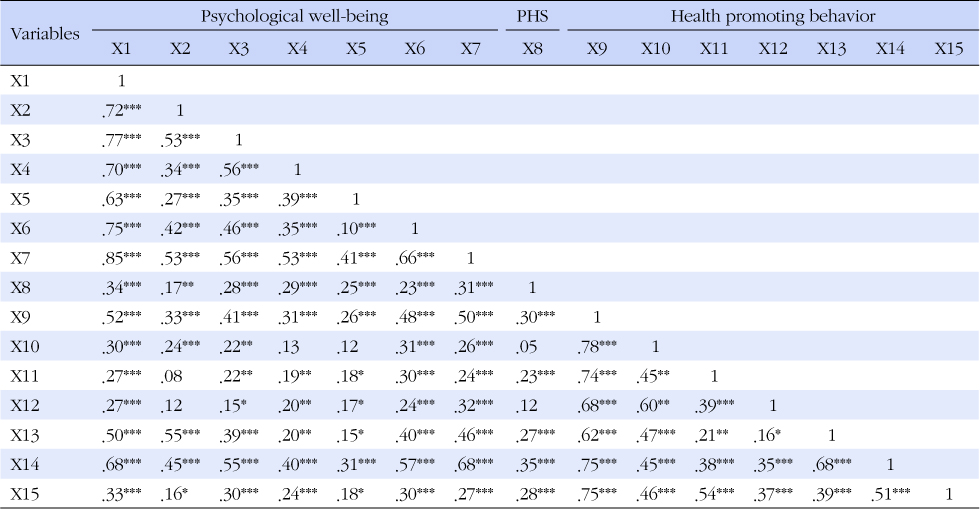Graduate School of Clinical Nursing Science, Sungkyunkwan University, Korea.
Copyright © 2013 Korean Academy of Nursing Administration
This is an open access article distributed under the terms of the Creative Commons Attribution Non-Commercial License (http://creativecommons.org/licenses/by-nc/3.0/), which permits unrestricted non-commercial use, distribution, and reproduction in any medium, provided the original work is properly cited.
This article is a condensed form of the first author's master's thesis from Sungkyunkwan University.




PHS=Perceived health status; X1=Psychological well-being; X2=Positive relations with others; X3=Self-acceptance; X4=Environmental mastery; X5=Autonomy; X6=Personal growth; X7=Purpose in life; X8=Perceived health status; X9=Health promoting behavior; X10=Health responsibility; X11=Physical activity; X12=Nutrition; X13=Interpersonal relations; X14=Spiritual growth; X15=Stress management.
*p<.05; **p<.01; ***p<.001.

Degree of Psychological Well-being, Perceived Health Status, and Health Promoting Behavior (N=194)
Differences in Psychological Well-being, Perceived Health Status, and Health Promoting Behavior by General Characteristics of Participants (N=194)
Duncan test.
Difference of Psychological Well-being, Perceived Health Status, and Health Promoting Behavior by Health related Characteristics of Participants (N=194)
Duncan test.
Correlation among Well-being, Perceived Health Status, and Health Promoting Behavior (N=194)
PHS=Perceived health status; X1=Psychological well-being; X2=Positive relations with others; X3=Self-acceptance; X4=Environmental mastery; X5=Autonomy; X6=Personal growth; X7=Purpose in life; X8=Perceived health status; X9=Health promoting behavior; X10=Health responsibility; X11=Physical activity; X12=Nutrition; X13=Interpersonal relations; X14=Spiritual growth; X15=Stress management.
*p<.05; **p<.01; ***p<.001.
Correlation among Well-being, Perceived Health Status, and Health Promoting Behavior (N=194)
Duncan test.
Duncan test.
PHS=Perceived health status; X1=Psychological well-being; X2=Positive relations with others; X3=Self-acceptance; X4=Environmental mastery; X5=Autonomy; X6=Personal growth; X7=Purpose in life; X8=Perceived health status; X9=Health promoting behavior; X10=Health responsibility; X11=Physical activity; X12=Nutrition; X13=Interpersonal relations; X14=Spiritual growth; X15=Stress management. *

